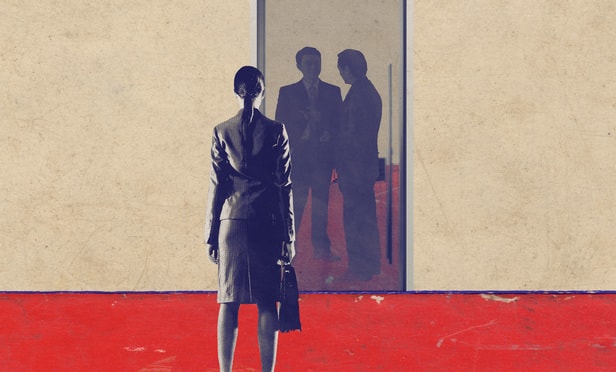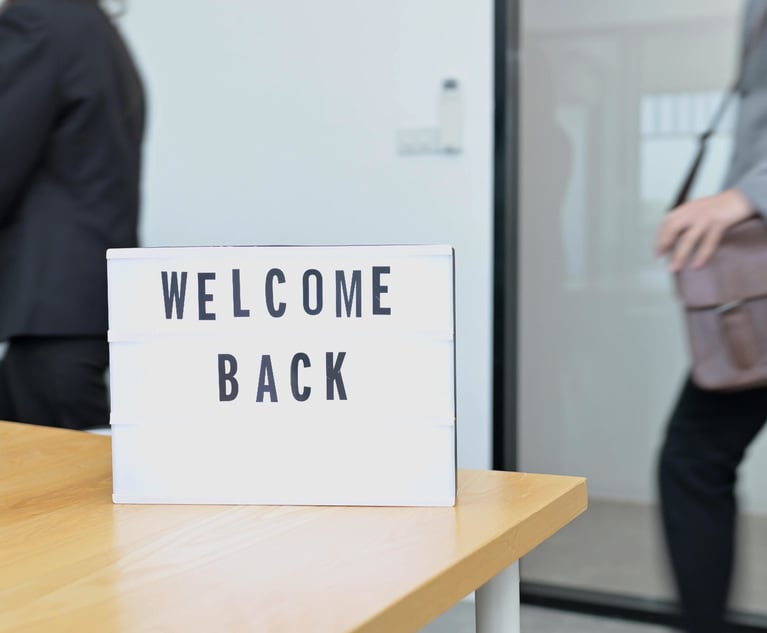As reports of harassment and inappropriate behaviour continue to surface in the legal industry, law firms and chambers are coming under ever-increasing pressure to turn their gaze inwards, to their own policies, pay, leaders and working culture. But there remains an area, on law’s periphery and often out of view, where the problem has until now gone largely overlooked.
Publishers The Legal 500 and Chambers and Partners have for decades played an integral part in the ranking and profile-building of lawyers, law firms and barristers chambers the world over, their wide-ranging directories embraced by all manner of businesses and individuals searching for the right lawyer.
Often unseen is the work of the researchers, writers and editors who make the directories what they are; less visible still are their experiences of inappropriate behaviour and harassment at the hands of those working at the law firms and chambers they work alongside.
“We were seen as outsiders, so for lawyers, anything goes,” says Elisa – a former researcher at a law firm directory.
After being contacted by a former researcher about the issue of lawyers harassing directory staff, Legal Week approached nearly 70 former legal directory researchers, editors and writers, in the process garnering nearly 40 reactions and conducting six in-depth interviews.
More than half acknowledge the need to investigate the matter, saying they have either themselves been on the receiving end of inappropriate behaviour or have heard about others who were, while the remainder say they have nothing untoward to report.
The interviewees describe incidents such as being hugged from behind, squeezed around the waist or repeatedly touched; being tricked into a hotel room by a name partner, or solicited for intimate pictures via text message; having their appearance remarked upon time and again; and a slew of unprofessional comments which, while too numerous to list here, we have limited to a handful of examples.
All six interviewees were women in their 20s at the time of their experiences – all of which took place within the last four years – with the majority working at The Legal 500 and the remainder at Chambers and Partners. All of them requested their real names were not used and some key details were omitted to avoid identification. Legal Week has changed the names of those interviewed.
‘Hand on my knee’
Many directory staff – typically young, recent graduates – will often spend time interviewing lawyers, attending press events, lunches and launch parties and, throughout the research process, interacting closely with senior lawyers and barristers’ clerks.
“What to do if a lawyer touches you inappropriately – there wasn’t a lecture on that,” says Zara, recalling her experiences of a couple of years ago when she went into the London office of a large law firm – which Legal Week has decided not to name – on a research assignment.
She describes an “eerie silence” in the office and “feeling a bit uneasy” the moment she sat down. She says the lawyer, a “relatively young” partner, sat very close to her. “There was no desk between us, and he wheeled his chair up to me like some grinning school kid and it didn’t take long until he had his hand on my knee.”
At first, she dismissed it as “just a hand on my knee – no big deal”, but he repeatedly touched her knee as he “thought out loud”. She laughed it away, but then felt a sense of ill-intent after the lawyer “commented on a tiny tear I had in my tights”. “It was quite high up my leg. You’d have had to be looking pretty close up to see that,” she says.
Though she pressed ahead with the interview, she recalls leaving the office feeling “like I wanted to cover up”, and regrets that she did not do more to stop his behaviour. “I wish I’d said something,” she says, “or at least taken his hand and shoved it aside, even in a jokey way.”
“I was there to build a relationship, which is why I felt I didn’t want to run away”
For Victoria, a situation involving a very senior partner “at a very well-known law firm” a few years ago started with an unprofessional comment. “He walked into the room and said, ‘they didn’t tell me you’re beautiful, I would have come earlier’.”
But from what might have been a standalone comment evolved into a more difficult situation. “He said, ‘why don’t you come for a drink at my hotel’. But what he actually meant was his hotel room. He tricked me. This put me in the awkward position of running away and embarrassing my company, or going along with it. Once I was inside, I felt uncomfortable enough to leave. But stayed long enough for it not to seem too weird.”
When asked why she decided to go to the room, Victoria tells Legal Week of the desire to get the firm “on side with us”. She adds: “I was there to build a relationship, which is why I felt I didn’t want to run away.”
Victoria is uncomfortable talking about the discussion that took place in the hotel room, and fears that any explanation would easily identify both herself and the partner involved.
‘Very flirty all of a sudden’
“There was a significant power imbalance – he was high, high up. I was a lowly researcher”
Louise often attended seasonal parties hosted by barristers’ chambers. She describes lavish events “on an epic scale” – the finale in a year often interspersed with exclusive lunches and dinners.
She describes an incident that took place a couple of years ago, which involved being taken to “a fancy club”.
“A senior clerk was the last one there. He got very flirty, all of a sudden. It was odd. I hadn’t given any indication whatsoever that that’s where this was going. He started looking through my bag, which felt like an excuse to get closer, to lean in.”
She describes being touched on the arm, him leaning in as they were saying their goodbyes, and a general sense of unbidden overfamiliarity.
But for Louise, her most demoralising experience was yet to come – at a summer party that same year hosted by the senior clerks of a well-known set.
She had gotten to know one particular senior clerk – who she says was married with children – through conducting interviews, but also in a social setting and at chambers’ parties. She says she initially believed him to be a “nice guy, married with kids”, and at one point exchanged numbers “on the expectation that it would be for networking purposes”.
“I remember seeing that little green bubble, then the message, ‘why don’t you send me over some pictures’.”
“I’m not going to lie, I remember being pretty drunk, and it was quite late. I was in a taxi on the way back home, and I got a message from him. I was young, so I went along with it. To this day, it annoys me that I did that, but I didn’t know what to do.
“I remember seeing that little green bubble, then the message, ‘why don’t you send me over some pictures’. I didn’t reply. He was married with children. I was horrified.”
Louise says she was left feeling as though she had led him on, that she had entrusted him with her personal number and was betrayed. “There was a significant power imbalance – he was high, high up. I was a lowly researcher.”
Left feeling embarrassed
Three interviewees were quick to highlight that not all instances of inappropriate behaviour happen at the hands of older men, and that the younger generation can be just as culpable. For Elisa, it was an experience that she still finds hard to place, one that occured at a “boozy summer event”.
She explains that, while having a good time and feeling she was making headway with her contacts, at one point when standing at a serving table, “a young lawyer, who shall remain nameless, came up behind me and held my hips, drawing himself closer, peering over my shoulder and, sort of down my top. He even said ‘nice top’. I stiffened up. I really didn’t know him well at all.”
Revisiting the scenario, Elisa still questions whether or not the action was inappropriate “because it was so quick”, saying that the young lawyer “didn’t seem like a bad guy at all, but just young, and privileged”, she says. “You know, it was ‘banter’, as they say.”
“As people talk about these things more and more, I cast my mind back to it. And I realise, maybe that was not okay, maybe I should’ve said something.”
“I felt as though he was blocking me from leaving the room”
Gemma, meanwhile, talks about two experiences that left her feeling powerless and embarrassed. In one scenario, when saying their goodbyes, a senior lawyer stood close, gripped her hand, cupped the other over it and held it. “I felt as though he was blocking me from leaving the room,” she says, believing the lawyer was imposing himself on her and intimidating her.
In a separate experience, Gemma was interviewing lawyers involved in a case in which there was a reference to people being filmed.
In front of several others, a senior lawyer asked her: “If you’ve got one of those tapes of yourself, can I see it?” Gemma recalls. She says she was left feeling embarrassed.
“He kept looking at my chest”
Another former researcher Legal Week spoke to says she felt it necessary to, while conducting an interview, manoeuvre her position to avoid the gaze of an “older” lawyer: “He kept looking at my chest. It got uncomfortable and he either didn’t notice what he was doing, or didn’t seem to care if anyone else noticed.”
The expectation after a few drinks
“Sometimes, there was this expectation that, at a party, after a few drinks, you’d be okay with inappropriate behaviour”
Aside from discussing the physical inappropriate behaviour they encountered, interviewees talk about how lawyers were often “flirty” over the phone. One woman explains: “It was expected that you massaged their egos.” Another suggests there is still an expectation for women to be coquettish, “to giggle at jokes”. A third says it got to the point where, when a lawyer asked to meet up for a drink, she always “wondered what the motive was”.
The two directory businesses operate in different ways. While Chambers tends to keep its staff onsite – according to its online methodology – where researchers conduct interviews with lawyers and legal staff over the phone or by email, The Legal 500 “conducts interviews in person or by telephone”, as per its methodology, often dispatching its researchers and editors to law firms and barristers’ sets across the country.
Other language directed at researchers working over the phone ranged from the casually belittling – “sweetie”, “dear”, “you sound cute, so you’ll be fine” – to the unmistakably patronising, as one researcher recalls being told: “To put this into terms you’d understand, we’re like a Gucci handbag while [the other law firm] is like a H&M handbag.”
Louise believes there was an ever-present undertone of ‘if you’re a woman, we’re not going to take you all that seriously’. “It destroyed my trust,” she adds.
She talks about often feeling patronised and that alcohol was regularly used as an alibi for poor behaviour: “Sometimes, there was this expectation that, at a party, after a few drinks, you’d be okay with inappropriate behaviour,” she adds.
‘Complainy women’
“Two years on, I still think twice about going into a room with just one or two men”
For most of those Legal Week spoke to, being a researcher, writer or editor brought real job satisfaction. It was a role in which they were able to do good work, to meet interesting people and attend “fun” events. Simply put, “it was a good job,” says one interviewee.
But for many female former researchers the publication interviewed, their experiences left an indelible mark on how they conduct themselves in the workplace, in conversation and at work events.
“Belittled, a bit ashamed,” Zara replies when asked how her experience made her feel. “But mainly, I now think that a work thing can never just be a work thing. There’s always a ‘hang on a sec’ moment.” She adds: “Two years on, I still think twice about going into a room with just one or two men.”
Zara talks about how the #MeToo movement helped her talk about her experiences without feeling judged. “It definitely helped me, in that it makes you think, wait, none of that was okay. Why should it be expected? Why is there pressure to just ignore it and forget about it?
“But I think everyone thinks that because of #MeToo everyone’s now on women’s side, but I don’t think that’s true. There’s still pressure to not be a ‘complainy woman’, even from other women, so I think a lot of us just keep things to ourselves.”
Ruth, meanwhile, says she was once embarrassed and “expected to play along” when a lawyer appeared to snigger over a “pub joke” about women with smaller breasts. “Now it’s just, smile and move on. If I called out every bad joke or leer, I’d be at it all day.”
‘Part of the game’
“You going to see the perv again?”
Five of the interviewees say that, during their time at the directories, they were not aware of what had been done to address the problem. One added that “few people complained”.
Zara says that, within her team, they were “blasé about it”. She would laugh it off when someone asked her: “You going to see the perv again?”
In a discussion with a male colleague at the directory, Louise says she was made to feel like she had “led the guy on, which up until very recently I actually believed”. Conversely, however, she also hears things are changing.
Similarly, when asked if she had talked about the incident with anyone at her directory, Elisa says she did not want to mention it, as she had been told in advance by her peers to expect a degree of unprofessional behaviour.
“In a way,” she says, “it was part of the game.”
“Our researchers should feel safe going into any meeting with any partner around the globe”
Earlier this year, John van der Luit-Drummond, an editor at The Legal 500, wrote an article, published both on LinkedIn and in The Legal 500 sub-publication fivehundred, in which he pointed to the problem facing researchers. He said that senior staff had received complaints that staff were “subjected to unwelcome advances” and that The Legal 500 was “shocked to discover other examples of inappropriate or unprofessional conduct initiated by lawyers during the research process for our various guides”.
He added: “For the record, we will not tolerate abusive or harassing behaviour directed at any of our team. Our researchers should feel safe going into any meeting with any partner around the globe.”
Legal Week asked both directories about the kinds of experiences related by the interviewees, and about their complaints procedures. Questions included: what complaints procedures are currently in place; whether these procedures had changed or been enhanced in the past 12 months; and whether there is pressure on staff to build relationships with law firms and barristers’ chambers.
The Legal 500’s response to all of the above questions reads: “The Legal 500 has been at the forefront of calling out inappropriate behaviour – and was the first publication to go public on allegations of such behaviour towards legal researchers. We are proud to operate zero tolerance of such behaviour. The article we published in fivehundred magazine [in the December 2018/January 2019 issue] makes clear how seriously we take alleged incidents of that sort. Any suggestion to the contrary would be inaccurate.”
The Legal 500 is owned by Legalease, which is also the owner of Legal Business, a competitor to Legal Week.
Chambers and Partners, meanwhile, explained that it has a grievance procedure in place, that editors provide support to analysts “in all our research efforts”, and that it provides “training regarding interviewing skills and objection handling to our employees”.
It says that since its new management came in 12 months ago, it has “actively promoted” values including “being diverse and inclusive” and “treating people with dignity and respect”. It adds: “We would expect the same behaviours from those with whom we interact.”
Chambers adds: “The #MeToo movement has [created] a heightened awareness of these issues and Chambers’ inclusion team is proactively taking steps to empower colleagues to deal with such behaviour. In November 2018, we hired Dee Sekar as our head of diversity and inclusion. Dee is a U.K. lawyer with seven years of corporate D&I experience and has taken the lead on our external and internal inclusion policies and practices.”
‘Vulnerable position’
Harini Iyengar, a barrister at 11KBW, says: “Researchers for the legal directories can find themselves in a vulnerable position, because their job typically requires them to spend a lot of time in the premises of law firms and chambers, which are not controlled by their own employer, and working with lawyers and clerks whom their own employer has no right to discipline.”
How widespread such experiences are is hard to measure. Whereas some respondents say they have nothing to report, many others stress the importance of the issue and either acknowledge it as a pervasive problem, or say they were subject to bad behaviour but for their own reasons declined to participate in the story.
The scale of inappropriate behaviour and harassment in the legal industry as a whole was last month laid bare, in a survey conducted by the International Bar Association across 135 countries. The survey found half of its female respondents had been affected by bullying, while more than a third had experienced sexual harassment of some sort at work. The survey highlights the range of inappropriate behaviour that manifests in the workplace – from the more overt forms of harassment to behaviours of a subtler kind.
What is clear is that the role the legal directories play in the industry appears unlikely to change any time soon. “We put tens of thousands behind each [directory] campaign,” one insider at a U.S. law firm says, describing the undeniable importance of a directory ranking. A City partner adds: “Despite what anyone tells you, [a ranking] matters; people have built their careers on it.”
Have you worked in a service role related to the legal industry and experienced anything similar to the stories in this article? We would be interested in hearing from you. Or if you have worked in a different industry that interacts with the legal profession and would like to get in touch, then please email Krishnan at [email protected], or call him on 0203 440 7516.
NOT FOR REPRINT
© 2024 ALM Global, LLC, All Rights Reserved. Request academic re-use from www.copyright.com. All other uses, submit a request to [email protected]. For more information visit Asset & Logo Licensing.
NOT FOR REPRINT
© 2024 ALM Global, LLC, All Rights Reserved. Request academic re-use from www.copyright.com. All other uses, submit a request to [email protected]. For more information visit Asset & Logo Licensing.
NOT FOR REPRINT
© 2024 ALM Global, LLC, All Rights Reserved. Request academic re-use from www.copyright.com. All other uses, submit a request to [email protected]. For more information visit Asset & Logo Licensing.
NOT FOR REPRINT
© 2024 ALM Global, LLC, All Rights Reserved. Request academic re-use from www.copyright.com. All other uses, submit a request to [email protected]. For more information visit Asset & Logo Licensing.
NOT FOR REPRINT
© 2024 ALM Global, LLC, All Rights Reserved. Request academic re-use from www.copyright.com. All other uses, submit a request to [email protected]. For more information visit Asset & Logo Licensing.













